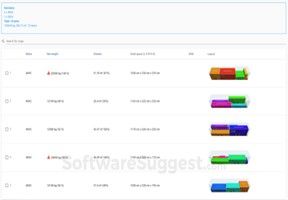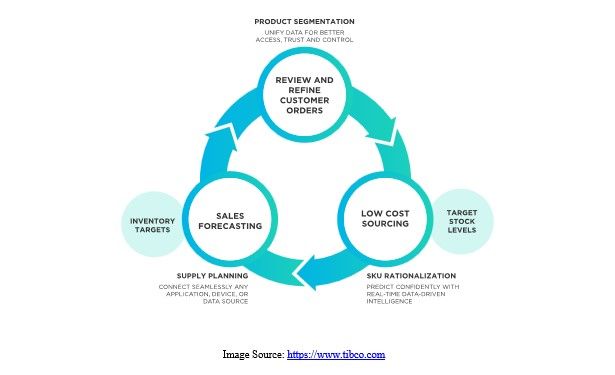Introduction
Efficient logistics management is essential for businesses involved in goods transportation. However, manual cargo planning processes often lead to inefficiencies, delays, and increased costs. The integration of data analytics with cargo planner software has revolutionized the logistics industry, enabling companies to unlock unprecedented efficiencies in their operations. In this blog post, we will explore how data analytics, when harnessed alongside cargo planner software, can optimize logistics operations and drive success.

-
Data-Driven Decision Making By seamlessly integrating data analytics with cargo planner software, logistics professionals gain the ability to make well-informed decisions by leveraging real-time insights and historical data analysis. By effectively processing and analyzing vast amounts of information, analytics tools offer valuable intelligence on crucial factors like demand patterns, customer preferences, and market trends. This empowers logistics managers to optimize routes, proactively anticipate demand fluctuations, and address operational challenges with confidence and efficiency.
-
Real-Time Tracking and Monitoring By seamlessly integrating data analytics with cargo planner software, logistics operators unlock the capability for real-time tracking and monitoring of shipments. Leveraging the power of IoT devices, sensors, and telematics systems, they can efficiently gather and analyze crucial data pertaining to the location, temperature, and condition of goods. Armed with this real-time information, logistics operators can proactively manage potential disruptions, optimize delivery routes on the fly, and provide customers with accurate and timely updates on the status of their shipments, enhancing overall transparency and customer satisfaction.
-
Performance Optimization By harnessing the power of data analytics, logistics managers gain access to invaluable insights into key performance indicators (KPIs) within their operations. Through vigilant monitoring and analysis of metrics such as on-time delivery rates, transit times, and resource utilization, they can identify bottlenecks, inefficiencies, and areas primed for improvement. Armed with this knowledge, logistics managers can fine-tune processes, optimize resource allocation, and drive enhancements in overall performance, leading to customer satisfaction and substantial cost savings.
-
Continuous Improvement through Data Analysis Cargo planner software with data analytics paves the way for continuous improvement by enabling comprehensive analysis of operational data. By harnessing advanced analytics techniques, logistics operators can uncover valuable patterns, trends, and anomalies within their data, driving actionable insights. This analysis serves as a catalyst for process optimizations, including route adjustments, load balancing improvements, and proactive maintenance planning. These strategic initiatives are aimed at attaining operational excellence and cost efficiency, positioning logistics operators at the forefront of their industry.
-
Data-Backed Collaboration and Partnerships Data analytics in cargo planner software fosters a culture of data sharing and collaboration among stakeholders in the market. By establishing a shared data ecosystem, logistics operators, shippers, carriers, and other partners can collaborate effectively, aligning their operations and making collective, data-driven decisions. This collaborative approach streamlines processes and optimizes resource allocation in the market.

Conclusion
By leveraging the power of data analytics alongside cargo planner software, logistics operators can unlock unprecedented efficiencies, cost savings, and customer satisfaction, Time management. The integration of data analytics enables data-driven decision-making, predictive demand forecasting, real-time tracking, performance optimization, continuous improvement, and collaborative partnerships. Embracing this synergy empowers logistics professionals to navigate the complexities of the modern business landscape and drive their operations toward success and growth.





